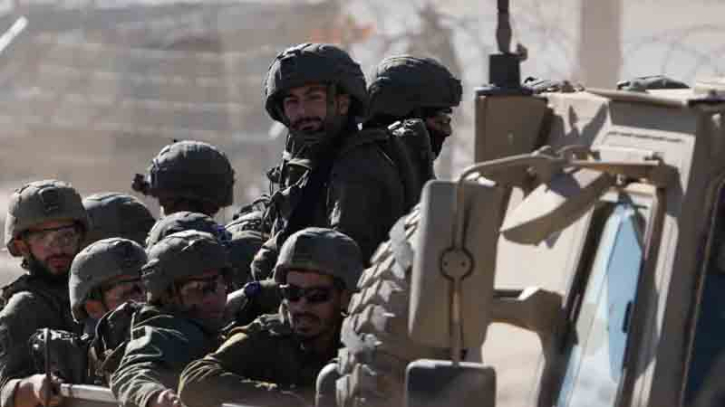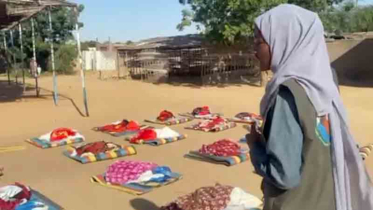
Israel’s continued military operations i
Israel’s continued military operations in Lebanon and Syria are being seen by analysts and diplomats as part of a broader strategy to maintain regional dominance by ensuring its neighbors remain politically unstable and militarily weak.
In conversations with Al Jazeera, regional experts described Israel’s approach as one designed to thwart state-building efforts in both Lebanon and Syria, reinforcing its own power in the process.
“The Israelis believe that having weaker neighbors—states that can’t function properly—is beneficial because it ensures they remain the strongest actor in the region,” said Elia Ayoub, writer, researcher, and host of The Fire These Times podcast.
Despite being targeted, neither Lebanon nor Syria has launched a significant counteroffensive. Militarily and economically, both countries lag far behind Israel, which boasts superior defense capabilities, advanced technology, and financial resources.
Lebanon’s Fragile State Amid Israeli Strikes
Lebanon, still reeling from years of economic crisis and political gridlock, has recently endured an intense Israeli bombardment that killed over 4,000 people and devastated large portions of the country. The conflict, which also severely weakened Hezbollah—a dominant political and military force in Lebanon—officially ended with a ceasefire on November 27, 2024. However, Israeli violations have continued.
“There are a lot of violations,” a member of Lebanon’s civil defense told Al Jazeera from the southern town of Meiss el-Jabal. “There’s nothing we can do about it.”
Although the ceasefire agreement required Israel to fully withdraw from Lebanese territory, it has maintained its military presence at five strategic points. Experts believe these positions are being held as leverage for future border negotiations.
“Israel’s military operations in Lebanon have no real limits,” said Mohanad Hage Ali, a senior fellow at the Carnegie Middle East Center in Beirut. “The only difference is in the scale of retaliation, which is often disproportionately harsh.”
Syria’s Transitional Government Under Fire
Syria, recovering from a nearly 14-year civil war that left hundreds of thousands dead and millions displaced, has also been a target of renewed Israeli aggression—especially after the December 8 overthrow of President Bashar al-Assad.
Despite the transitional government’s pledges to avoid regional conflict and uphold the 1974 Agreement on Disengagement, Israel has escalated its attacks on southern Syria, particularly in Deraa and al-Quneitra.
“Israel has made a bet that Syria will fail and remain fragmented,” said Aron Lund, a fellow at Century International. “They’re positioning themselves to control southern Syria and ensure it remains non-threatening.”
March 2025 saw a significant spike in Israeli airstrikes and ground incursions, with attacks on civilian areas becoming increasingly deadly.
“In Deraa, after residents in Kuya village fired warning shots to deter Israeli advancement, the response was swift and brutal—airstrikes and shelling that killed at least six civilians,” said Muaz al-Abdullah, Middle East research manager at ACLED.
A similar incident occurred in the city of Nawa, 34 km north of Deraa. According to local resident Imad al-Baysiri, Israeli troops attempted to seize control of major town squares, prompting resistance from local youths. The Israeli response included drone strikes and aerial bombardments that lasted for hours.
A Strategy Rooted in Militarism
The Israeli government has made its stance on Syria’s new leadership clear, referring to the new administration as “a terror group from Idlib that took Damascus by force.” Since Assad’s removal, Israel has increased attacks along the Golan Heights frontier, capturing additional Syrian territory.
Analysts argue that Israel’s leadership is pursuing a policy of perpetual conflict to maintain control.
“This government knows how to make war but hasn’t shown any ability or willingness to make peace,” a Western diplomatic source told Al Jazeera, adding that Israel listens to the U.S., “but only to a certain extent.”
Hezbollah’s weakened deterrent power following the latest conflict has also emboldened Israel’s operations, said Hage Ali.
“All deterrence has been lost. Without any diplomatic or military pressure to restrain them, Israel appears determined to keep Lebanon and Syria in chaos.”
Natasha Hall, senior fellow at the Center for Strategic and International Studies, echoed this sentiment during a panel discussion at the American University of Beirut on April 8.
“Israel seems quite comfortable in a state of ‘forever war’. It sees it as the safest path forward.”
































.png)
.png)







